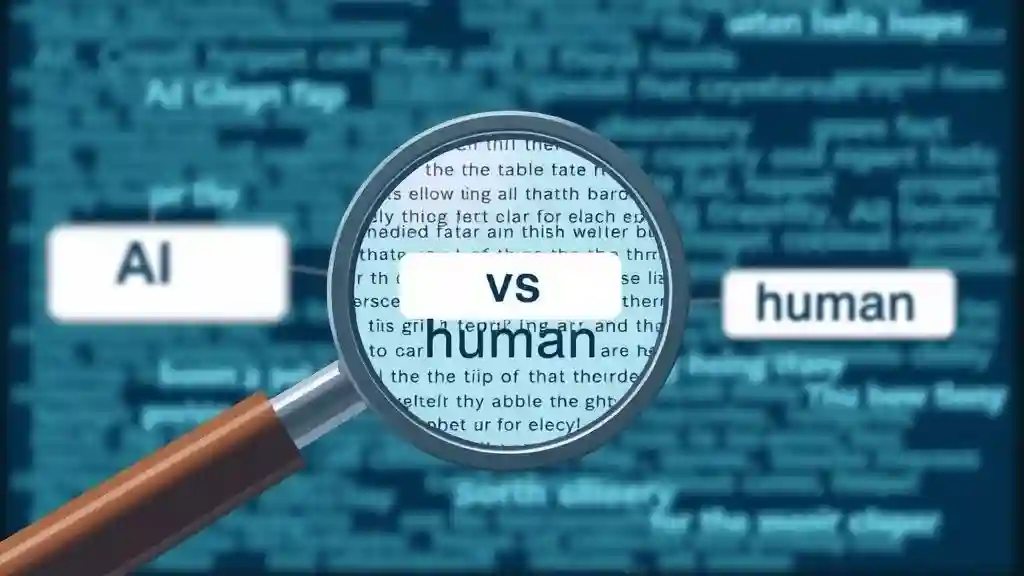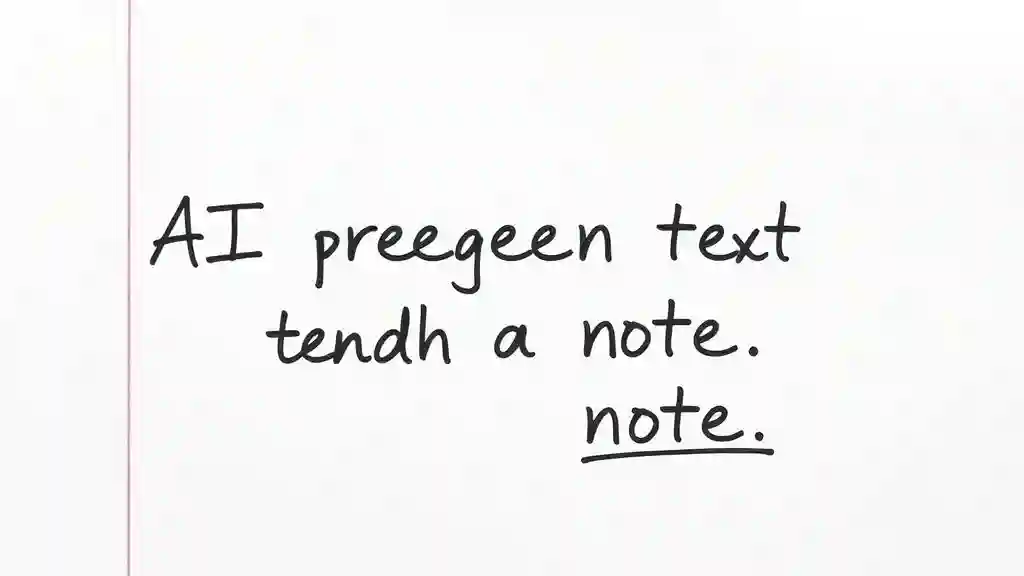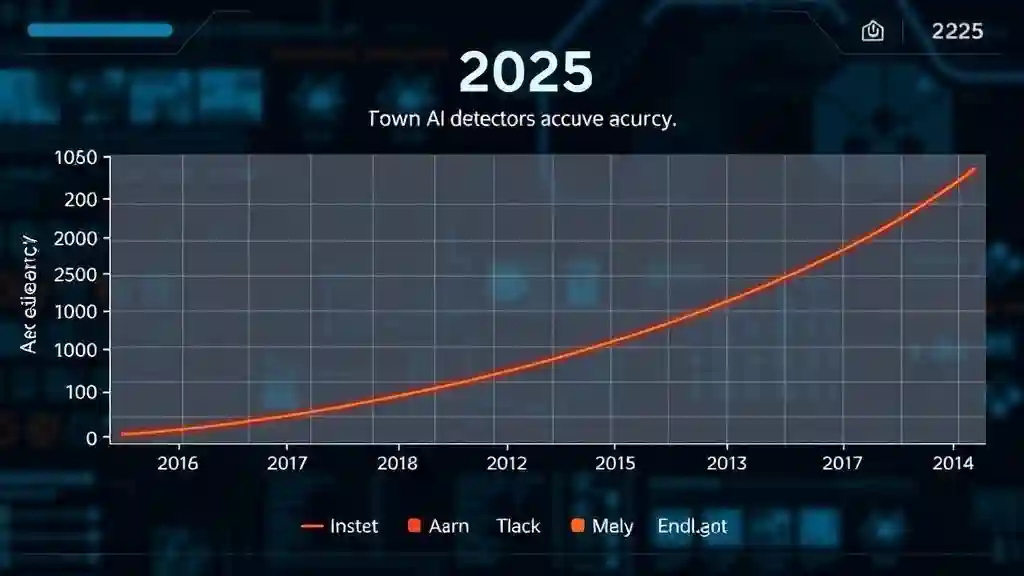
Can AI Detect AI? The 2025 Showdown Between Detectors and Writers
Everywhere you look in 2025, AI is writing. Blogs, essays, ads, product pages — even the tweets you scroll past at midnight. But with this flood of machine-made words comes a new anxiety: AI Content Detection. Google, schools, and platforms are cracking down on text flagged as “too robotic.”
That’s where the real tension starts. Writers, students, and marketers are asking the same thing: Can detectors really tell if a text is AI-generated? And if they can, how do we fight back?
This post breaks it down. You’ll see the best AI Content Detection tools, the rise of AI Humanizing Tools that flip machine text back into “human,” and why this cat-and-mouse game matters more than ever for SEO, trust, and your grades.
Why AI Content Detection Matters in 2025
In 2025, ignoring AI Content Detection is like driving without insurance — risky, stressful, and likely to backfire. Google, universities, and publishing platforms are all raising the stakes. If your content gets flagged as “AI-written,” you could lose rankings, grades, or credibility overnight.
For SEO writers, that means fewer clicks. For students, it could mean failed assignments. For businesses, it means customers who don’t trust your words.
Here’s the twist: AI writing isn’t going away. It’s faster, cheaper, and too tempting to ignore. That’s why AI Humanizing Tools are blowing up — they help rewrite and polish drafts so they feel natural, authentic, and safe from detector flags.
At the end of the day, it’s not about hiding from AI. It’s about blending productivity with authenticity so your words work without getting punished.
The Best AI Content Detection Tools of 2025

If you’re serious about staying safe online, you need to know which AI Content Detection tools actually work. Here are the top players in 2025:
🔎 Originality.ai
- Best for SEO pros
- Combines AI detection + plagiarism check in one dashboard
- Super accurate, integrates with team workflows
- Paid tool, but worth it if rankings = revenue
⚡ Sapling AI Detector
- Best for enterprise teams
- Real-time scoring at the sentence level
- Upload files, export reports, even get certifications
- Great for businesses that need compliance proof
✍️ QuillBot AI Detector
- Best free option + bonus humanizer
- Easy interface, solid detection for essays/blogs
- Free tier is generous, plus you get paraphrasing tools
- Perfect if you want “all-in-one” AI detection + humanizing
🎓 GPTZero
- Best for students & educators
- Measures burstiness + perplexity (fancy words for “does this sound human?”)
- Widely used in schools and universities
- Strong for academic writing checks
AI Humanizing Tools – Making AI Content Sound Real

Let’s be real: sometimes your draft looks AI even when it reads fine to you. That’s where AI Humanizing Tools come in. These tools smooth out robotic phrasing, add natural flow, and make your content feel like you wrote it.
🛡️ Undetectable.ai
- Best for “stealth mode” writing
- Takes AI text and rewrites it until detectors chill out
- Super handy when you need blog posts or essays that pass checks
- My take: great in a pinch, but always add a human edit pass
🔄 QuillBot (again, yes!)
- Paraphrasing powerhouse
- Doesn’t just shuffle words — it reshapes sentences for clarity
- Bonus: you can tweak tone (formal, casual, etc.)
- I’ve used this when a paragraph felt stiff — 30 seconds later, it read smoother and more natural
👉 Here’s the catch: humanizing tools aren’t magic. If you dump raw AI text and never touch it, people will still notice. The trick is combo play — AI Humanizing Tools + your own edits + real examples. That mix makes content believable and safe.
breaking flow:
📊 Comparison Table: Top AI Content Detectors (2025)

| Tool | Pros | Cons | Pricing | Best Use Case |
| Originality.ai | ~95% accuracy, includes plagiarism check, team features | Paid only, no free plan | Starts $0.01/100 words | SEO writers, agencies |
| Sapling AI | Real-time scoring, enterprise reports, compliance-ready | More for businesses than individuals | Tiered enterprise plans | Corporates, customer support |
| QuillBot Detector | Free tier, easy UI, doubles as humanizer | Accuracy slightly lower than paid tools | Free + premium upgrade | Students, casual bloggers |
| GPTZero | Academic-friendly, burstiness + perplexity scoring | ~85% accuracy on long-form, sometimes overflags | Free + pro version | Schools, educators |
🔢 Stats Worth Dropping in the Blog
- Over 60% of universities in 2025 now use AI detection tools to check essays and reports. https://hai.stanford.edu/events/aieducation-summit-ai-service-teaching-and-learning
- Benchmark tests show Originality.ai hits ~95% accuracy, while GPTZero averages ~85% for long-form content.
- Searches for “AI humanizer” have spiked 200% in 2025 as writers look for safer workflows.
The Technology Behind Detection & Humanization
So, how do AI Content Detection tools actually “know” if text is AI-written? It’s not magic — it’s math and pattern-spotting.
🧩 Key Concepts Made Simple
- Perplexity → Think of it as “predictability.” AI tends to write in very predictable patterns. Human writing? Messier.
- Burstiness → Humans mix short and long sentences. AI often keeps it neat and samey.
Detectors scan your text for these patterns. If it looks too perfect, too smooth, or too predictable, 🚨 it gets flagged.
🤝 The Cat-and-Mouse Game
Here’s where AI Humanizing Tools flip the script. They mess with those patterns — adding variety, breaking up sentence lengths, and making writing feel more human.
It’s basically a chase:
- Detectors get smarter at spotting AI.
- Humanizers get smarter at reshaping AI text.
And the cycle repeats. That’s why in 2025, it feels less like a war and more like a chess match between detectors and writers.
👉 Bottom line: neither side is winning forever. The best strategy is to use both — detection tools to test your draft, and humanizers + your own edits to balance it out.
Practical Tips for Writers & Marketers
Alright, let’s get real. Tools are great, but how you use them makes the difference. Here’s how I keep my writing safe, natural, and ranking:
✅ 1. Always Run a Detection Check
I run my AI drafts through Originality.ai or GPTZero before I hit publish. It’s like a final proofread — if it’s flagged, I know I need edits.
✅ 2. Don’t Rely on One Tool
Sometimes one detector says “AI” while another says “human.” That’s normal. I cross-check with at least two tools so I don’t get blindsided.
✅ 3. Use a Humanizer, Then Edit Yourself
QuillBot or Undetectable.ai can smooth the robotic edges. But the real trick? Add your voice. I throw in personal stories, casual phrases, or even a joke. That human touch beats any tool.
✅ 4. Mix Up Sentence Lengths
This one’s free: short. sharp. sentences. Then a longer one. This natural mix makes detectors (and readers) happy.
✅ 5. Add Real Examples
AI writes about things. Humans write from experience. So, I slip in anecdotes like, “When I tested Sapling, it actually caught errors Grammarly missed.” That small detail screams human.
👉 The pattern here: test, tweak, and personalize. That combo is what makes your content safe and engaging.
Why This Topic Is a 2025 SEO Trend
Here’s the truth: AI Content Detection isn’t just some geeky side topic. It’s shaping how SEO, education, and marketing work in 2025.
- Google’s tightening rules → If AI content looks spammy or robotic, rankings tank. Clean, human-like writing = survival.
- Schools are stricter → Students can’t just hand in raw ChatGPT essays anymore. Detection tools are everywhere.
- Brands need trust → If a blog post feels fake, customers bounce. Authenticity = conversions.
That’s why searches for AI Humanizing Tools are exploding. People aren’t asking, “Should I use AI?” anymore. They’re asking, “How do I use AI without getting caught?”
And that demand isn’t slowing down. The smarter the detectors get, the bigger the market for humanizers, editors, and strategies that blend the two.
👉 Translation: this isn’t a fad. It’s the next big SEO battleground. Writers who master both detection and humanization will own the content game in 2025.

Conclusion: Playing Smart in the AI Detection Game
I’ll be honest — the first time I ran my own AI-written draft through a detector, it came back screaming “100% AI.” My stomach dropped. I’d just spent hours polishing it, and still, the tool saw right through me. That moment taught me two things: detectors are tough, and raw AI won’t cut it.
The next time, I tried again — but this time I ran the text through QuillBot, added a story about a tool I tested, and rewrote a few stiff sentences in my own voice. When I checked again? It flagged much less. That’s when it clicked: the secret isn’t to fight AI, it’s to work with it smartly.
That’s the game in 2025. AI Content Detection tools will keep getting sharper. AI Humanizing Tools will keep leveling up. And we, the writers, sit right in the middle.
The winners aren’t the ones pretending they don’t use AI. The winners are the ones who know the workflow: draft with AI → check with detectors → refine with humanizers → finish with your voice.
When you do that, your content doesn’t just “pass the test.” It connects. It builds trust. And that’s the only score that really matters.
👉 My advice (from falling on my face a few times): don’t skip the personal touch. That’s the one thing no detector, no AI, and no tool can fake.

Pingback: AI for content optimization & ranking 2025 - zadaaitools.com
Pingback: Grammarly vs QuillBot 2025: Which AI Writer Wins? - zadaaitools.com